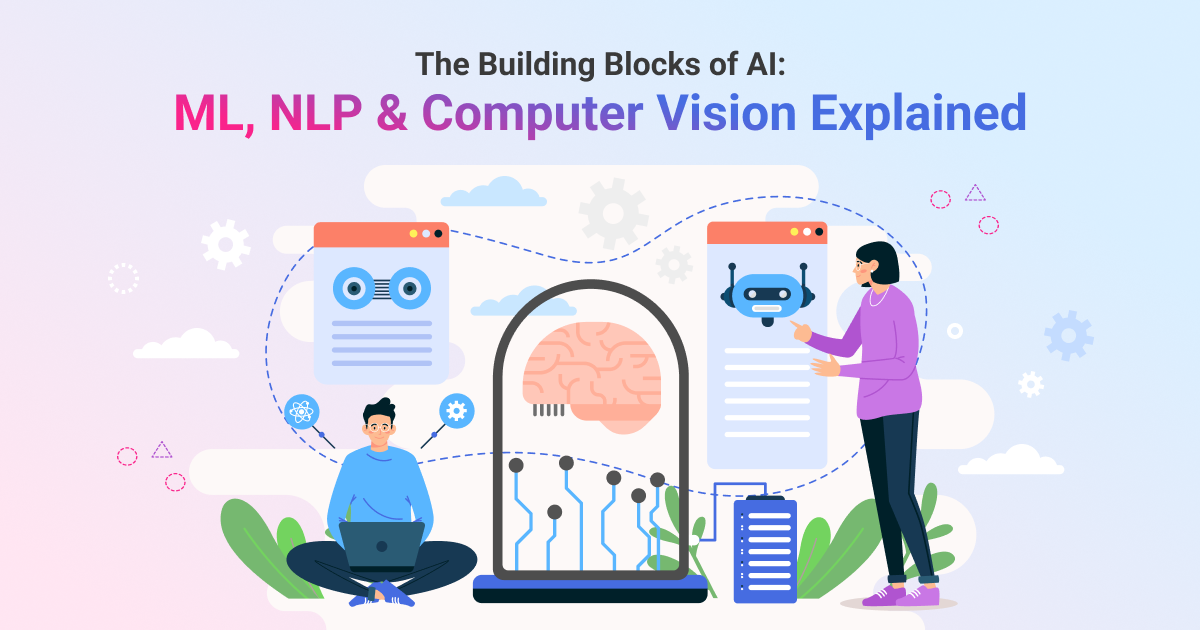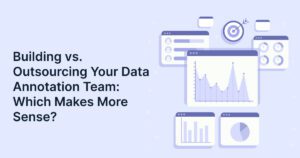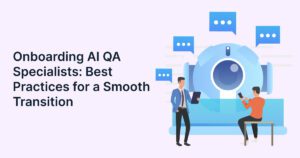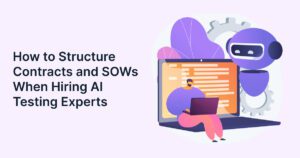The Building Blocks of AI: Understanding Machine Learning, NLP, and Computer Vision


Many business leaders believe that hiring for AI is a numbers game that a wider applicant pool guarantees a better outcome. This is a critical misunderstanding. Flooding your pipeline with candidates without a precise framework to differentiate their skills only creates noise, slowing down the entire process. This friction leads to wasted engineering hours, sunk recruitment costs, and project delays, while the hidden consequence is a lost competitive advantage as your product deadlines slip. A systematic hiring process is possible, especially when a single bad hire can cost up to 30% of that employee’s first-year earnings. This guide provides a new framework to close that information gap, helping you understand the AI fundamentals so you can hire with confidence.
The root of most AI hiring failures isn’t a talent shortage; it’s a specialization blindspot. Companies often post roles for a \”Data Scientist\” or \”AI Engineer\” when they need specific expertise in one of AI’s core disciplines. This leads to a flood of applicants who are mismatched from the start, bogging down a process that already takes an average of 66 days for technical roles.
Understanding the three core building blocks of AI is the first step to correcting this. These are not interchangeable skill sets. Each discipline solves a different class of business problems and requires a unique combination of technical expertise to verify.
Without distinguishing between these, hiring managers screen for general knowledge instead of proven, specialized ability.
To move past generic screening, you need a framework that maps business needs directly to verifiable skills. Instead of asking if a candidate \”knows AI,\” you should be asking if they have delivered results in the specific domain your project requires.
Machine learning is about using algorithms to find patterns in data and make predictions. An ML expert doesn’t just know the theory; they have a deep, practical understanding of how to build and deploy models that work.
NLP enables machines to read, understand, and generate human language. This field has evolved rapidly, and expertise now requires more than just basic text analysis. True specialists work with complex models to derive intent and context.
Computer vision gives machines the sense of sight, allowing them to analyze images and videos. This is one of the most specialized AI fundamentals, demanding a strong grasp of both deep learning and image processing pipelines.
Knowing what to look for is only half the battle. Implementing a rigorous vetting process that can accurately assess these specialized skills is resource-intensive. It requires designing domain-specific technical challenges, conducting deep portfolio reviews, and having senior experts available to evaluate candidates.
This is why platforms like Expertshub.ai exist. Our five-stage vetting process is built on the Expertise-First Framework, ensuring every candidate has been evaluated not just for general AI knowledge, but for proven, hands-on experience in areas like machine learning, natural language processing, or computer vision. We handle the complex verification so you can focus on integrating scalable AI expertise into your team.
Adopting this framework does more than just fix a single broken hiring process it creates a lasting strategic advantage. When you can confidently access pre-vetted AI experts on demand, you fundamentally de-risk innovation and accelerate your time-to-market.
Instead of committing to a costly full-time hire for an exploratory project, you can engage a specialist for a defined period. This allows you to test new ideas, build prototypes, and scale your team with predictable budgeting and without the overhead of traditional recruitment. This flexible approach, offered by talent platforms like Expertshub.ai, transforms your talent acquisition from a slow-moving cost center into a dynamic, strategic asset.
Artificial Intelligence (AI) is the broad concept of creating intelligent machines. Machine learning is a specific subset of AI focused on training algorithms to learn from data without being explicitly programmed. It is the most common practical application of AI today.
While many experts have advanced degrees, it’s not a mandatory credential. Proven experience and a strong project portfolio are far better indicators of success. The key is to verify their ability to solve real-world problems using their skills in natural language processing or computer vision, not just their academic credentials.
By focusing on the specific building blocks of AI from machine learning to computer vision and natural language processing you can move from guessing to knowing you have the right talent for the job.
Browse our talent profiles and start building your AI team with confidence.


